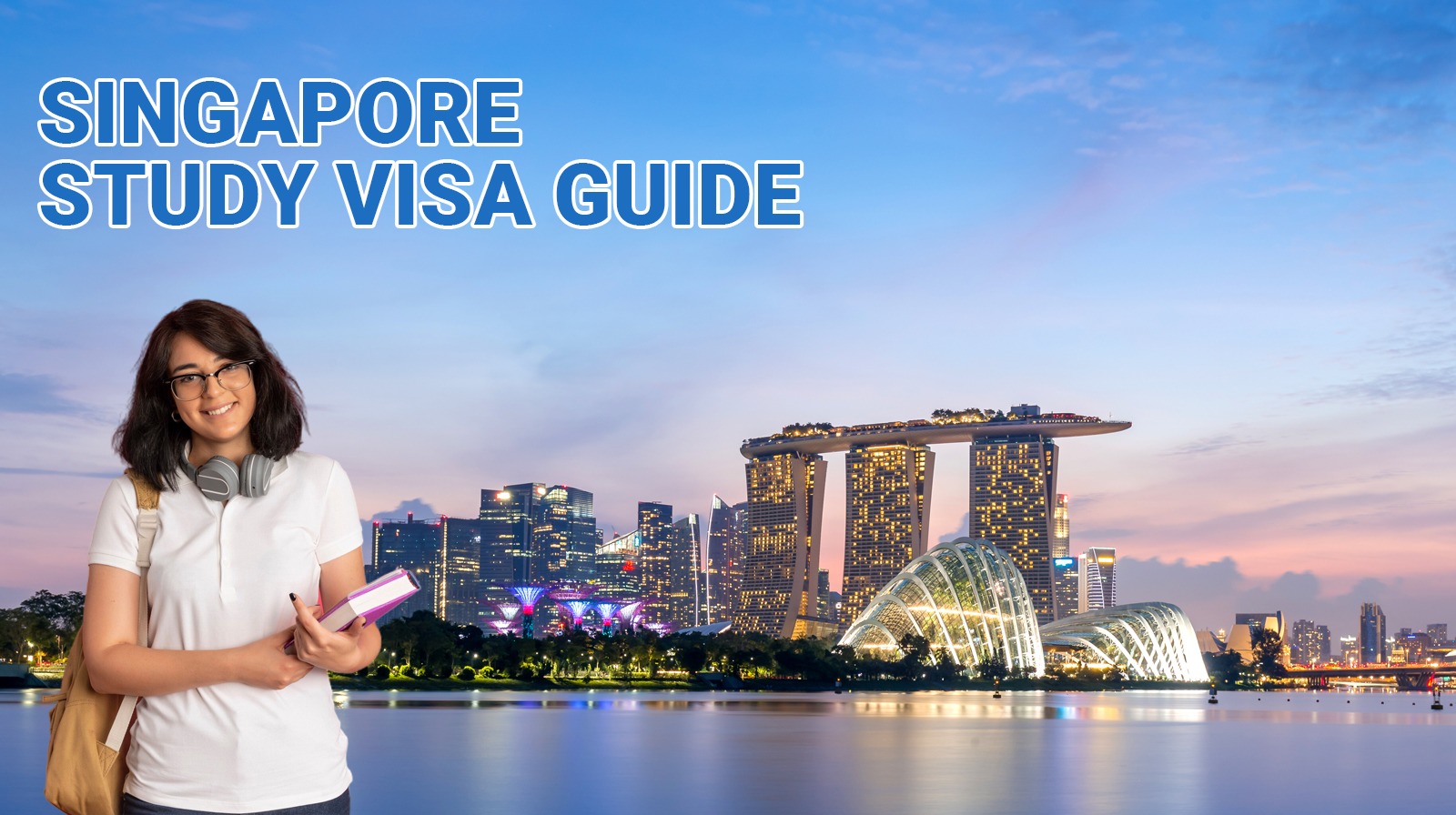Navigating the Pathway to Excellence: Singapore Study Visa Guide
In the ever-evolving landscape of global education, Singapore stands out as a beacon of academic excellence and innovation. Renowned for its world-class universities, vibrant multicultural environment, and cutting-edge research facilities, Singapore offers international students a unique opportunity to pursue their academic aspirations in a dynamic and forward-thinking setting. If you're considering studying in Singapore, this comprehensive blog will provide you with invaluable insights into the fees, processing time, and requirements, paving the way for a smooth and fulfilling educational journey.
Understanding the Singapore Study Visa:
Before delving into the specifics, it's essential to grasp the basics of the Singapore Study Visa, officially known as the Student's Pass. This visa is a prerequisite for international students seeking to enroll in full-time academic programs at approved educational institutions in Singapore. Whether you're pursuing undergraduate, postgraduate, or doctoral studies, obtaining a Student's Pass is a crucial step in realizing your educational goals in Singapore.
Fees and Expenses:
One of the primary considerations for prospective international students is the cost associated with obtaining a Singapore Study Visa. The application fee for a Student's Pass is SGD 30 (approximately USD 22), payable online via the Immigration and Checkpoints Authority (ICA) website. Additionally, approved educational institutions may charge administrative fees related to visa processing, ranging from SGD 30 to SGD 60 (USD 22 to USD 44). It's essential to budget for these expenses as part of your overall study abroad financial plan.

Seeking Direction?
Allow Us To Assist You.
Processing Time:
The processing time for a Singapore Study Visa varies depending on several factors, including the completeness of your application, the workload of the Immigration and Checkpoints Authority (ICA), and the time of year. In general, the processing time ranges from 5 to 10 working days from the date of submission. However, it's advisable to submit your visa application well in advance of your intended travel date to allow for any unforeseen delays or additional documentation requirements.
Requirements:
Now, let's delve into the essential requirements for obtaining a Singapore Study Visa:
- Letter of Acceptance: You must have received an official Letter of Acceptance from a recognized educational institution in Singapore before applying for a Student's Pass.
- Valid Passport: Ensure that your passport is valid for at least six months beyond your intended stay in Singapore.
- Completed Application Form: Fill out the Student's Pass Application Form (Form 16) accurately and truthfully, providing all required information.
- Passport-Sized Photograph: Submit a recent passport-sized photograph taken against a white background, adhering to the specified dimensions and guidelines.
- Proof of Financial Ability: Demonstrate sufficient financial means to cover your tuition fees, living expenses, and other related costs during your stay in Singapore.
- Medical Examination Report: Undergo a medical examination at an authorized clinic or hospital and obtain a medical examination report certifying that you are in good health.
- Travel Insurance: Obtain comprehensive travel insurance coverage for the duration of your stay in Singapore, including medical expenses, hospitalization, and repatriation.
Conclusion
Embarking on a journey of higher education in Singapore is a transformative experience filled with opportunities for personal growth, academic excellence, and cultural enrichment. By familiarizing yourself with the fees, processing time, and requirements for the Singapore Study Visa, you can navigate the application process with confidence and embark on your educational adventure with peace of mind. With its unwavering commitment to excellence and innovation, Singapore welcomes aspiring students from around the world to discover their potential and shape a brighter future through education.
Frequently Asked Questions
Q: 1. Can I work while studying in Singapore?
Answer: Yes, international students enrolled in full-time degree programs at approved educational institutions in Singapore are allowed to work part-time for up to 16 hours per week during the academic term and full-time during scheduled vacation periods. However, certain restrictions may apply, and students should check with their institution and the Immigration and Checkpoints Authority (ICA) for specific guidelines.
Q:2. Do I need to demonstrate English proficiency to study in Singapore?
Answer: While English proficiency is generally required for admission to academic programs in Singapore, applicants from non-English-speaking countries may be required to provide proof of English language proficiency through standardized tests such as the TOEFL or IELTS. However, exemptions may apply for students who have completed their previous education in English-medium institutions or countries where English is the primary language.
Q:3. What are the living expenses for international students in Singapore?
Answer: The cost of living in Singapore can vary depending on factors such as accommodation, transportation, food, and personal expenses. On average, international students should budget approximately SGD 750 to SGD 2,000 per month for living expenses, including rent, utilities, groceries, transportation, and miscellaneous costs. Actual expenses may vary based on lifestyle choices and individual preferences.
Q:4. Are scholarships available for international students studying in Singapore?
Answer: Yes, various scholarships, grants, and financial aid programs are available to support international students pursuing higher education in Singapore. These scholarships may be offered by the Singaporean government, educational institutions, private organizations, and international agencies. Eligibility criteria, application procedures, and deadlines vary for each scholarship, so students should research and apply for opportunities that align with their academic goals and financial needs.






